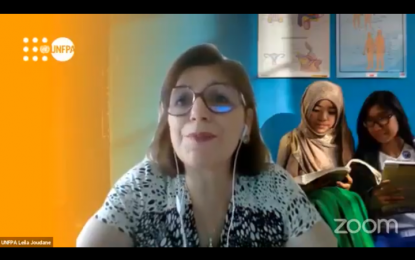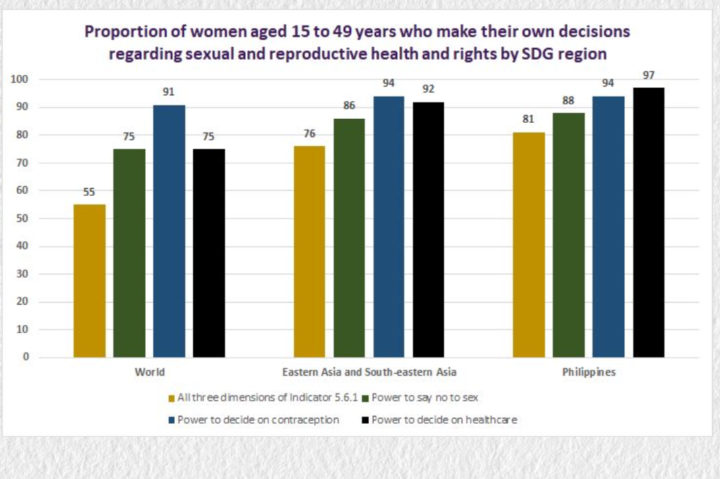
IMPROVED DATA. UNFPA Philippines Country Representative, Dr. Leila Joudane, in a virtual presser on Wednesday (May 19, 2021) explains that adolescents in the Philippines continue to face cultural and systemic barriers in realizing their rights for bodily autonomy. The groups said they continue to discuss methods to improve the data on Filipinas' sexual and reproductive health and rights. (Screengrab from virtual presser)
MANILA – Compared to other countries, Filipinas aged 15 to 49 ranked higher in terms of making decisions on their sexual and reproductive health and rights, the United Nations Population Fund (UNFPA) said on Wednesday.
"For all dimensions of SDG Indicator 5.6.1, the Philippines fare better compared to the rest of the world on average," the latest State of the World Population (SWOP) report of UNFPA said.
The report showed that 81 percent of the surveyed Filipino women aged 15 to 49 were able to make their own decision concerning health care, sexual and reproductive health and rights — mainly, contraception and sex with their husbands or partners — between 2007 and 2018.
Those who have the power to decline sex were at 88 percent; those who have decisions on contraception, 94 percent; and those who can decide on health care, 97 percent.
But UNFPA Philippines Country Representative, Dr. Leila Joudane, said there are still areas where the country can do better to ensure that women and girls get to exercise their bodily autonomy.

"In particular, the need to address the disparities across income, age, level of education, and geographic location in realizing this right," she said at a virtual briefer.
Commission on Population and Development director, Dr. Juan Antonio Perez III, said Filipino adolescents continue to face cultural and systemic barriers in realizing their rights for bodily autonomy.
“For instance, the alarming statistics of adolescent pregnancy is a result of our young people’s inability to realize their rights to autonomy and self-determination," he said.
Worldwide, the UNFPA report stated that women only enjoy just 75 percent of men’s legal rights, despite constitutional guarantees of gender equality in many countries.
The report also found that adolescent pregnancies were often a result not of a deliberate choice but of restrictive policies, sex without consent, harmful social norms, and lack of information. (PNA)
